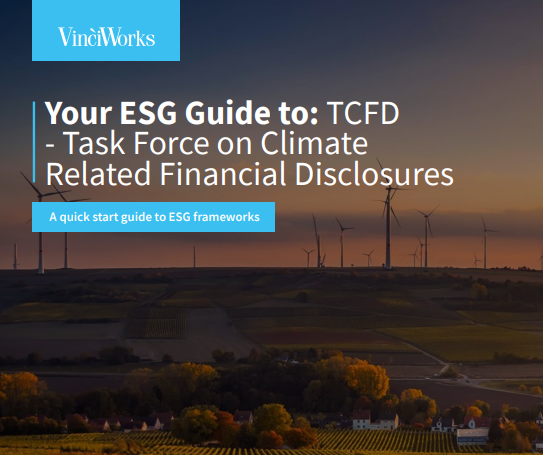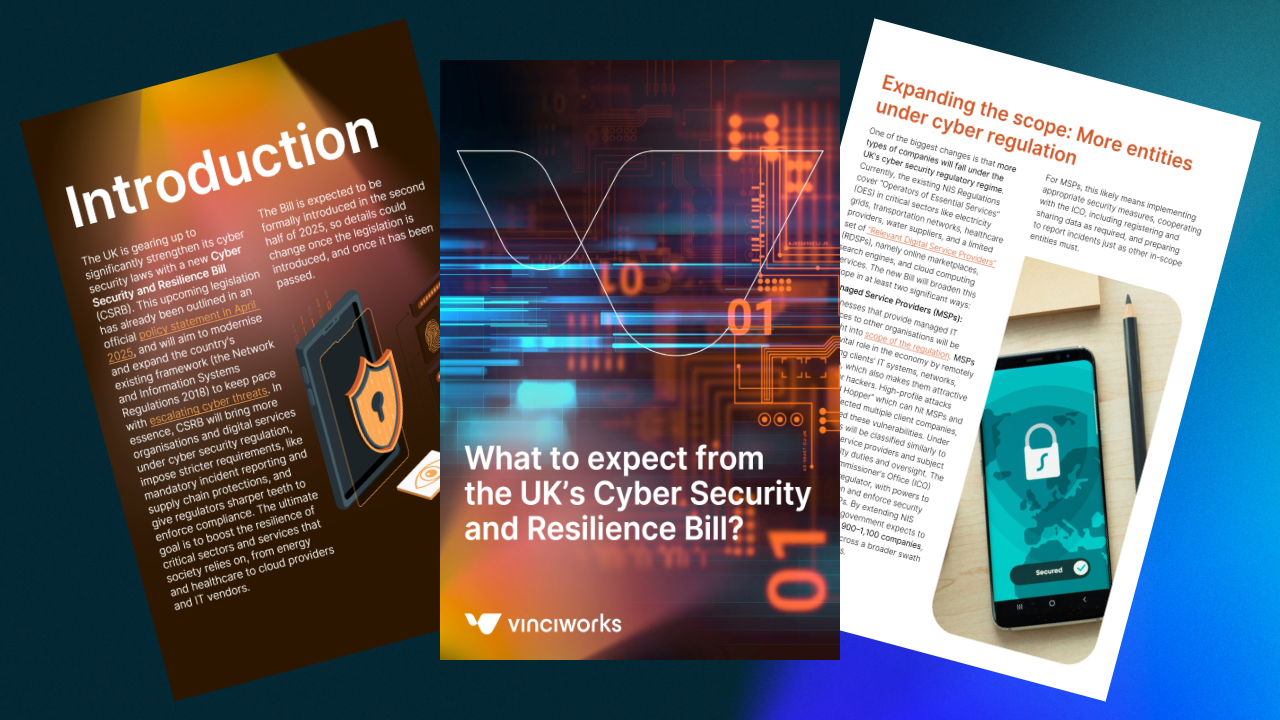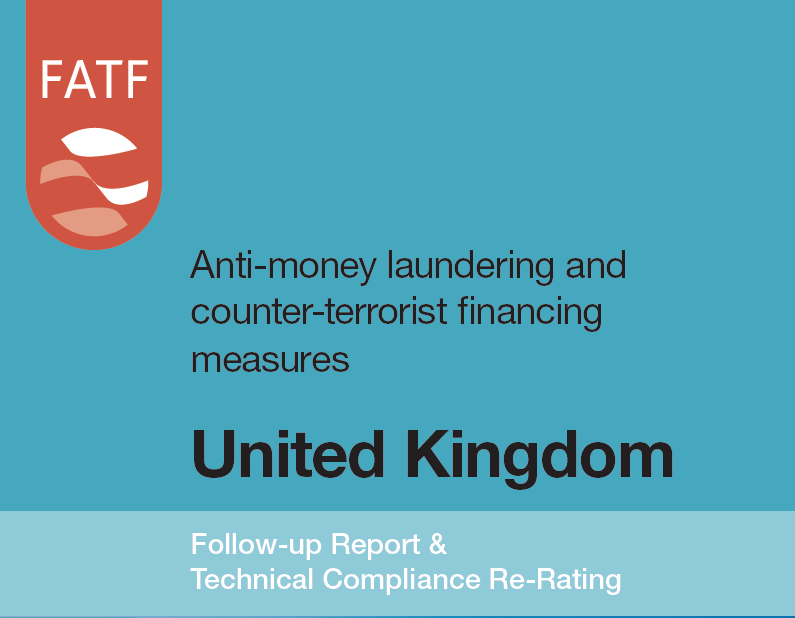
ESG Reporting Frameworks
Global businesses are now bringing environmental, social and governance issues together under the banner of ESG to demonstrate the positive impact the business is having on the world. Deciding to start ESG (environmental, social, and governance) scoring can seem like a daunting task. But figuring out which ESG framework could work best for your business can help you get started with ESG and guide your reporting process, showing you where to look, what to measure, and how to communicate it.
There are many reporting frameworks for ESG. Some of the most popular ESG frameworks are the World Economic Forum (WEF), the Global Reporting Initiative (GRI), the Sustainability Accounting Standards Board (SASB), the Task Force on Climate Related Financial Disclosures (TCFD), Climate Disclosure Project (CDP) and the International Integrated Reporting Council (IIRC). VinciWorks has created a series of quick start guides to these frameworks.
What is TCFD?
The TCFD is focused on climate-related disclosures. The aim is to provide consistency across climate-related disclosures. Around 1,700 organisations are already using TCFD, and it is mandatory for the largest UK companies from April 2022.
It’s good for companies looking for a holistic approach to assessing climate risks, and for companies looking to make significant environmental commitments. However, it has a narrow environmental focus and does not address the social and governance aspects of ESG. Also, it requires technical elements to report on various GHG emissions. It’s more useful when combined with CDP in order to demonstrate industry-leading efforts to tackle climate change.
When was the TCFD framework created?
The TCFD (Task Force on Climate-related Financial Disclosures) framework was created in December 2015, established to develop consistent and comparable climate-related financial disclosures that companies can use to inform investors, lenders, insurers, and other stakeholders about their climate-related risks and opportunities
Why does TCFD matter?
The TCFD (Task Force on Climate-related Financial Disclosures) holds significant importance as it helps organisations assess climate-related risks, make informed decisions, promote long-term sustainability planning, and align with global climate goals. By adopting the TCFD framework, companies can understand and mitigate climate risks, provide transparent information to stakeholders, and more importantly, contribute to a sustainable future.
Want to learn more and see if the TCFD might be the right framework for your organisation? Click the button below to download a free copy of our ESG quick-start guide to TCFD.
Your ESG Guide to TCFD – Task Force on Climate Related Financial Disclosures













